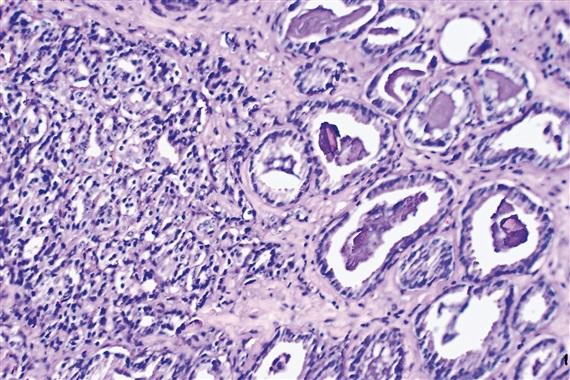Researchers Awarded $1 Million to Study Optimal Use of Radioactive Drugs for Prostate Cancer Therapy
Researchers at Dana-Farber Cancer Institute, in collaboration with Weill Cornell Medicine, have been awarded a three-year, $1 million grant from the U.S. Department of Defense (DoD) for prostate cancer clinical trials.
Prostate cancer is the most commonly diagnosed cancer and the second leading cause of cancer death in men. The DoD’s Prostate Cancer Research Program Clinical Consortium Award funds research that aims to eliminate prostate cancer deaths and enhance the well-being of men diagnosed with the disease. Awardees join a national consortium comprised of 13 leading academic medical centers that are conducting clinical and translational prostate cancer research.
The investigators will use the grant to support research into an experimental therapy that combines a radioactive atom with a molecule that seeks and destroys cancer cells. This technique, called targeted radionuclide therapy, delivers radiation directly to the cancer cells to destroy them.
The therapy targets a protein that is present in 85 to 90 percent of prostate cancers, called prostate-specific membrane antigen (PSMA). The goal is that cancer cells containing PSMA take up the radionuclide and are destroyed by the radiation. PSMA radionuclide therapy is mostly being studied as a treatment for prostate cancer that has spread and not responded to hormonal therapy.
“By correlating tumor genomics and expression profiles with PSMA imaging, we will gain additional insights into tumor heterogeneity and the biologic changes that occur in later stages of prostate cancer,” said co-principal investigator Dr. Himisha Beltran of Dana-Farber Cancer Institute. “Ultimately, we hope to use this data to identify patients most likely to respond to PSMA-targeted drugs.”
The team includes co-principal investigator Dr. Scott Tagawa, the Richard A. Stratton Associate Professor in Hematology and Oncology at Weill Cornell Medicine and medical director of the genitourinary oncology program at New York-Presbyterian/Weill Cornell Medical Center, and Dr. Neil Bander, the Bernard and Josephine Chaus Professor of Urological Oncology and a member of the Sandra and Edward Meyer Cancer Center at Weill Cornell Medicine.
They will look at prostate cancer tumor genes from past and present patients to try to identify genomic changes that might predict outcomes as well as look at PET scan images of PSMA in men both before and after treatment, as well as clinical parameters such as age and location of metastatic tumors, to see if there are factors that correlate to response to treatment.
Media Contacts
If you are a journalist and have a question about this story, please call 617-632-4090 and ask to speak to a member of the media team, or email media@dfci.harvard.edu.
The Media Team cannot respond to patient inquiries. For more information, please see Contact Us.
